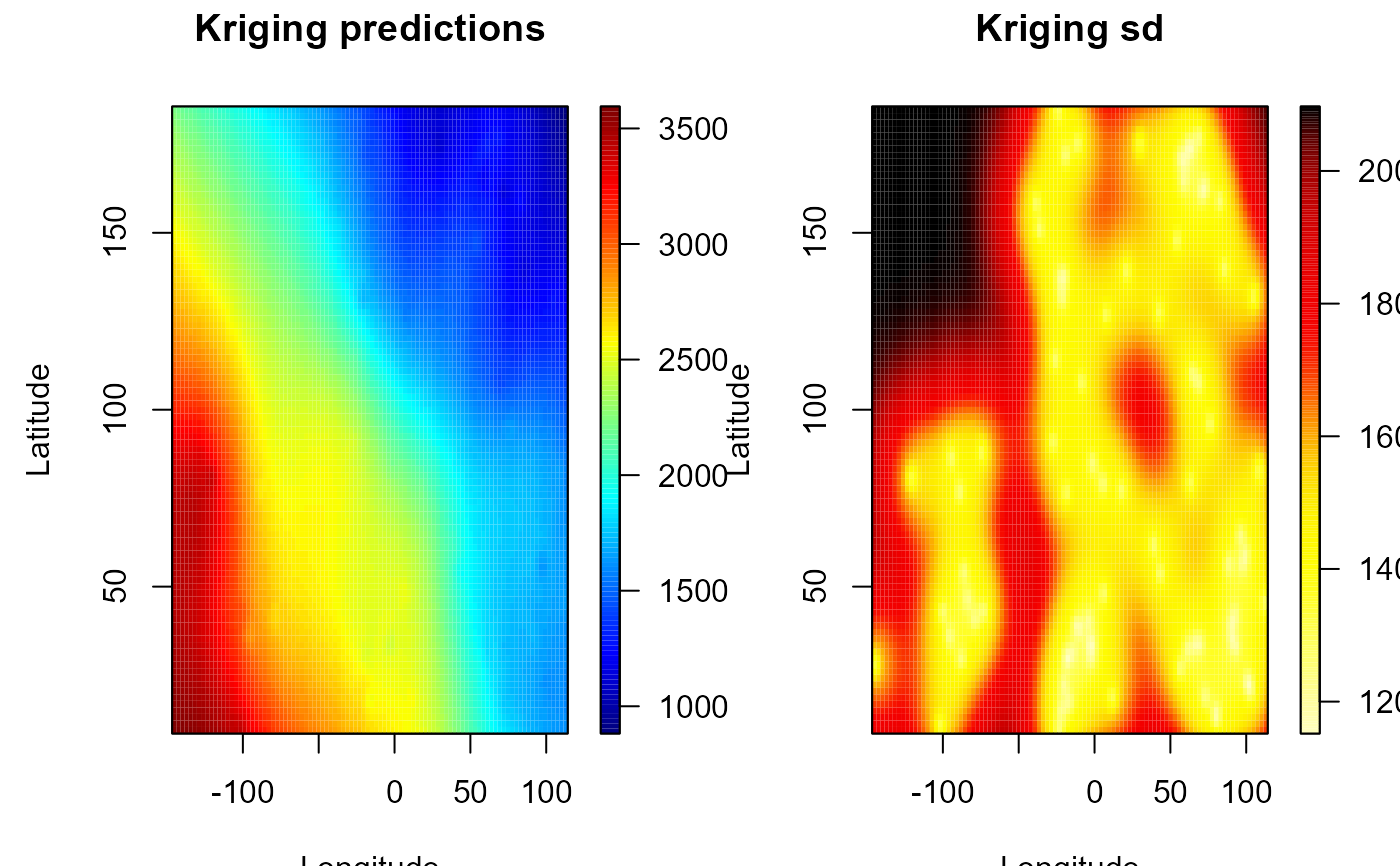Compute simple kriging or residual kriging predictions (and also the corresponding simple kriging standard errors ). Currently, only global (residual) simple kriging is implemented.
np.kriging(object, ...)
# Default S3 method
np.kriging(
object,
svm,
lp.resid = NULL,
ngrid = object$grid$n,
intermediate = FALSE,
...
)
# S3 method for class 'np.geo'
np.kriging(object, ngrid = object$grid$n, intermediate = FALSE, ...)
kriging.simple(x, y, newx, svm, intermediate = FALSE)Arguments
- object
object used to select a method: local polynomial estimate of the trend (class
locpol.bin) or nonparametric geostatistical model (class extendingnp.geo).- ...
further arguments passed to or from other methods.
- svm
semivariogram model (of class extending
svarmod).- lp.resid
residuals (defaults to
residuals(object)).- ngrid
number of grid nodes in each dimension.
- intermediate
logical, determines whether the intermediate computations are included in the output (component
kriging; see Value). These calculations can be reused, e.g. for bootstrap.- x
vector/matrix with data locations (each component/row is an observation location).
- y
vector of data (response variable).
- newx
vector/matrix with the (irregular) locations to predict (each component/row is a prediction location). or an object extending
grid.par-class(data.grid).
Value
np.kriging(), and kriging.simple() when newx defines
gridded data (extends grid.par or data.grid classes),
returns an S3 object of class krig.grid (kriging results + grid par.).
A data.grid object with the additional (some optional) components:
- kpred
vector or array (dimension
$grid$n) with the kriging predictions.- ksd
vector or array with the kriging standard deviations.
- kriging
(if requested) a list with 4 components:
lambdamatrix of kriging weights (columns correspond with predictions and rows with data)).cov.est(estimated) covariance matrix of the data.cholCholesky factorization ofcov.est.cov.predmatrix of (estimated) covariances between data (rows) and predictions (columns).
When newx is a matrix of coordinates (where each row is a prediction location),
kriging.simple() returns a list with the previous components (kpred, ksd
and, if requested, kriging).
Examples
geomod <- np.fitgeo(aquifer[,1:2], aquifer$head)
krig.grid <- np.kriging(geomod, ngrid = c(96, 96)) # 9216 locations
old.par <- par(mfrow = c(1,2))
simage(krig.grid, 'kpred', main = 'Kriging predictions',
xlab = "Longitude", ylab = "Latitude", reset = FALSE )
simage(krig.grid, 'ksd', main = 'Kriging sd', xlab = "Longitude",
ylab = "Latitude" , col = hot.colors(256), reset = FALSE)
 par(old.par)
par(old.par)